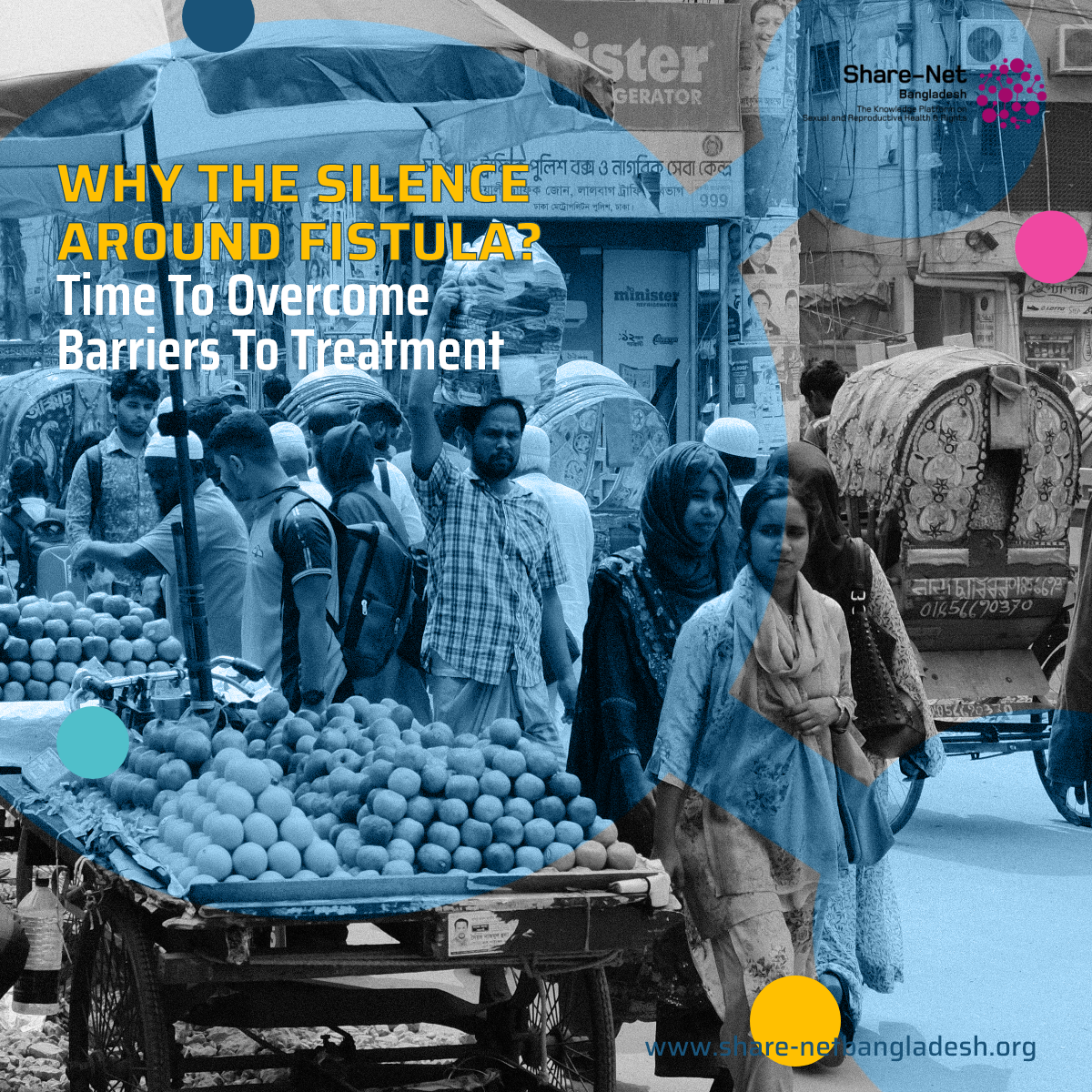Silence Around Fistula: Time to Overcome Barriers to Treatment
Bangladesh has made remarkable progress in reducing maternal mortality, yet the silent suffering of women with fistula remains largely overlooked. Obstetric fistula, often caused by prolonged obstructed labor without medical intervention, surgical errors during cesarean sections, or sexual violence, is both preventable and treatable. Despite this, an estimated 20,000 women in Bangladesh live with the condition, enduring not only physical pain but also social stigma, depression, and isolation.
Fistula is particularly prevalent among poor women who lack access to quality maternal healthcare. Many women in rural or low-income urban areas give birth at home, missing essential antenatal care (ANC) due to financial constraints. For these women, the risks of childbirth are amplified by poverty and systemic inequities in healthcare access.
Globally, nearly half a million women suffer from fistula, with the highest numbers recorded in low- and middle-income countries. This reality underscores the deep inequalities in healthcare systems. Sociocultural norms further compound the issue, as many women are reluctant to discuss reproductive health problems, leaving fistula underreported and untreated.
Addressing fistula requires a multifaceted approach. First, the government must prioritise sexual and reproductive health rights (SRHR) by ensuring that community clinics are equipped to provide regular ANC check-ups and timely referrals for complicated cases. Skilled surgeons must also be trained to minimise surgical errors during cesarean deliveries.
Ending child marriage—a leading cause of early pregnancies—is critical to reducing fistula rates. Married adolescents often face obstructed labor due to their underdeveloped bodies, heightening the risk of complications. Laws and policies must be strengthened to prevent early marriages and protect girls’ health and rights.
On International Fistula Day 2023, stakeholders were urged to break the silence around this issue. Awareness campaigns and initiatives to provide free treatment and rehabilitation services can help dismantle the stigma. Collaboration among healthcare providers, policymakers, and community leaders is essential to ensure no woman is left behind.
Fistula is more than a medical condition; it is a reflection of systemic failures in ensuring equitable healthcare. By addressing its root causes—poverty, lack of skilled care, and social stigma—Bangladesh can take significant strides toward safeguarding the sexual and reproductive health rights of all women.
Source: The Daily Star


